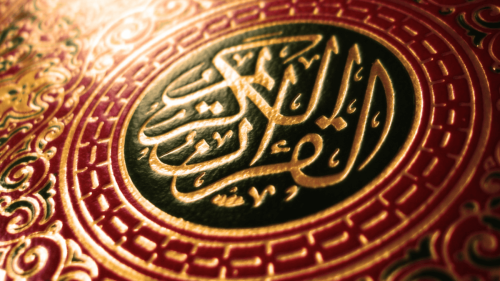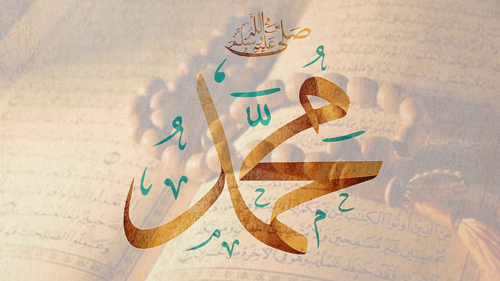Verses About Water in Qur'an

When I was in the midst of looking for a topic for my PhD dissertation, I came across a verse in the Quran that really made me shudder. It was the last verse of the Al-Mulk (Kingdom), where Allah SWT implores us to think "if all your water were to sink deep into the earth who could give you flowing water in its place?"
My mind was reeling with the question why would Allah SWT ask that question? Can the earth be drained of water? As my curiosity was piqued, I began to read and the more I read, the more alarmed I became. Although 70% of earth's surface is covered by water only less that 1% can be consumed by all humans, animals and plants. More seriously, potable water (water that can be consumed) in the form of rivers, is drying up in many parts of the world exacerbated by prolonged drought. Day Zero, the day water stops flowing from taps, nearly happened in Cape Town, South Africa in 2018. I realized then, the threat is real and God has warned us, it would be foolish not to take heed. Thus, I chose water as my topic. In this article I would like to share about the verses in the Quran on water.
"Water is mentioned numerous times in the Quran.[1] Allah SWT categorizes water into its different properties. He differentiates the rain that falls from the sky as purified water, water from the spring as sweet, seawater as salty and bitter [2] and mentions of water that flows from rocks[3]. He speaks of the barrier between freshwater and salt water[4]. In other verses there is recurrent theme in the verses. The different themes are illustrated for a better understanding of the verses and to portray the importance the Creator gave towards water. The attributes of Allah SWT are also portrayed in these themes as well.
1. Water as a Building Block of Living Things: Al-Khaliq (الخالق): The Creator
Allah SWT describes how water ( ماء mā' ) is the building block of all living things[5]. It is not surprising that the adult man is made up 60% of water and man can survive without water for only three to four days. It is an essential liquid for our very existence. Further describing about creation, He implores man to remember his humble beginning from a liquid disdained (semen)[6]. A reminder for mankind who tends to forget and they become conceited.
2. Rain as a Provision: Ar-Razzaq (الرزاق): The Sustainer
This is the main theme that Allah SWT often repeats, that rain is a mercy and a provision to mankind. Allah SWT emphasizes that it is He who makes the rainfall and makes the barren land fertile that brings forth food.[7] It is His mercy that the rain falls to provide water to drink and beautiful green pastures for the cattle.[8] He further describes rain as purified water and the winds that bring the rain-filled clouds as bearing good tidings.[9] He sent sweet water from the mountains for man to enjoy.[10] He made it clear that man has no control over rain and warns that He is able to remove it. [11] He challenges if anyone besides Him can deliver water and chastises man for his ungratefulness, for He could have made the rain bitter.
Reading these verses on the mercy Allah SWT has for mankind, makes one wonder how many of the His blessings that we take for granted. The detailed descriptions of the winds, rain, mountain springs, gardens, green pastures, the fruits and grains for food are to help us understand that He has provided them for us to celebrate and enjoy life and to thank Him for them.
3. Water as a Sign: Al-Muhyi (المحيى): The Giver of Life
Allah SWT always implores man to reflect and to see in the creation, the Majesty of the Creator. He describes how the rain from the sky, gives life to a dead earth and that is a sign for man to contemplate [12]. The parched earth in the African Savannah during the dry spell smells of death but brims of life when the rain falls, vegetation appears, and the wild animals gather around the watering hole to quench their thirst. Do we think about the Creator when we witness this phenomenon? He further questions if man does not wonder why crops, grapevines, palm trees watered by the same rain in the same vicinity produces fruits of different quality?[13] He asks us to ponder, if all the water seeps into the earth, who would provide us with flowing water? [14] If we reflect over these questions, we would realize the utter helplessness of man, and the mercy that the Creator has always shown us despite the ungratefulness of man.
4. Water as an Analogy: Ar-Rashid (الرشيد) The Righteous Teacher
Allah SWT makes analogies using water. He likens the life on this world to a life cycle of a plant. Rain falls on a dead barren earth, bringing to life vegetation, which later dries, and there is no trace of its existence [15]. Likewise, we were created from dust and we would return to dust. All the splendors and wealth of this world is of a fleeting existence that would disappear without a trace. He likens those who worship others besides Him to a man who stretches his hand towards water, calling it to fall into his mouth, an act in vain [16]. He describes the deeds of the disbelievers are like a mirage, one who is thirsty would run to it only to be disappointed of the falsehood and now has to face His wrath [17]. He compares the truth from falsehood with the analogy of foam on water, the foam vanishes like falsehood, only water, which benefits man, remains, as the truth would stand the test of time. [18]
5. Water as a Punishment: Al-Hasib (الحسيب):The Accounter
Just as water as a provision is a blessing and mercy, it also has a destructive side. Allah SWT uses water as a form of punishment in Hell. The harrowing scenes of Hell are described in great detail, to make man fear the end that awaits him for his disbelieve. Scalding water poured over the heads, boiling purulent water like murky oil is given as a drink, both flames and boiling water consumes the inhabitants of hell.[19] Those in hell whom He calls the companions of fire would call upon the companions of paradise for water for they would be deprived of it. If on earth, water is not given a second glance, but when in hell, it becomes the most prized item.
In the story of the Prophet Noah (AS), the great flood was the calamity that was sent to his tribe. No one is able to escape except those whom He wills.[20] In the story of the owners of the two gardens, the conceited owner loses everything.[21] These stories illustrate the utter helplessness of man but despite that he remains arrogant.
6. Water as a Reward: Ash-Shakur (الشكور): The Rewarder of Thankfulness
Water is also given as a reward, as Allah SWT promises heaven filled with gardens and springs.[22] Just as Hell was described in detail, likewise Allah SWT gives an illustration of the beauty of Paradise and the rivers of water, milk, wine and honey that flows within. Water is an important feature in Heaven just as in Hell. The grand Roman villas, the Versailles and other palaces have vast beautiful manicured gardens with exquisite water features like fountains, pools and water cascades. Man has been trying to create Heaven on earth for centuries.
7. Water for Purification: Al-Quddus (القدوس): The Pure One
Purification is an important aspect of Islam, and Allah SWT talks about external as well as internal purification. He instructed man to purify himself before prayers through ablution. The emphasis on purification is deeply embedded in Islam as we are thought to cleanse after easing ourselves and after sexual intimacy. Even if there is lack of water, purification still has to be performed using pure sand (tayammum) [23]. The Prophet SAW taught by example on how to perform these cleansing rituals. The act of prayer is when the servant comes forward to meet the Creator, and Creator would like to see His servant in a purified state. In the verse 8:11, Allah sends down rain as calmness, as an internal purification to remove the negative effect of Shaitan on their hearts."
Dr. Kulsanofer Syed Thajudeen has a Ph.D. in Islamic Finance, with more than 12 years of experience as an engineer working in an electrical utility company. She also had a stint at the Central Bank of Malaysia and the Islamic Finance Services Board (IFSB). She holds the Chartered Islamic Finance Professional (CIFP) credential, Bachelors and Masters in Engineering and an MBA.
[1] Occurs 63 times in the Quran as noun ماء mā'
[2] (35:12)
[3] (2:74)
[7] (2:22), (6:99),(20:53). (22:63),(27:60), (28:23)
[8] (16:10).
[9] (25:48)
[10] (77:27)
[12] (2:164), (16:65), (30:24),(31:10), (35:27), (39:21), (41:39), (43:11)
[14] (67:30)
[16] (13:4).
[17] (24:39)
[18] (13:17)
[19] (6:70), (18:29), (22:19), (37:67), (40:72), (44:46), (44:48), (55:44), (56:42), (56:93), (78:25).
[21] (18:41)
[22] (54:12),(55:50), (55:66), (56:18)
Topics: Dhikr (Rememberance Of Allah), Life And Death, Quran, Water Values: Humility, Spirituality
Views: 81718
Related Suggestions

















